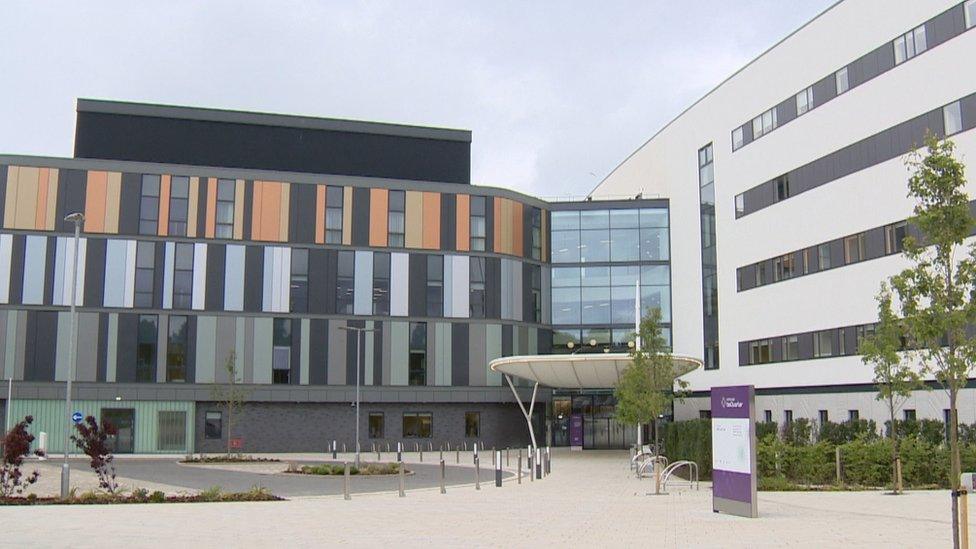Health secretary to make statement on crisis-hit Glasgow NHS board
- Published
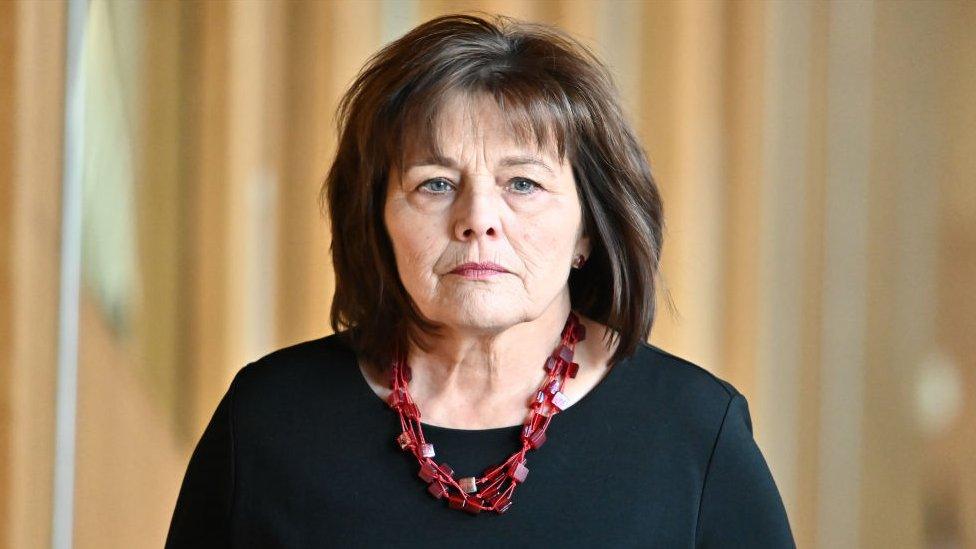
Health secretary Jeane Freeman will make a statement in the Scottish Parliament this week
Scotland's health secretary will address MSPs later amid mounting concerns about a Glasgow "super hospital".
Jeane Freeman is facing calls to put the NHS Greater Glasgow and Clyde (NHSGGC) in "special measures".
It follows speculation about the deaths of two children treated on a ward affected by water contamination at the Queen Elizabeth University Hospital.
The health board has apologised for the distress caused to parents.
Milly Main, 10, and a three-year-old boy died three weeks apart in August 2017.
They were both treated at the Royal Hospital for Children, which is on the Glasgow hospital campus, which was later closed because of water supply problems, according to newspaper reports.
Labour MSP Anas Sarwar said NHSGGC has lost the trust of families and staff over its handling of the deaths.
Ms Freeman is due to make a 10 minute statement to the Scottish Parliament on the hospital ward closure at 14:00 GMT, before taking questions from MSPs.
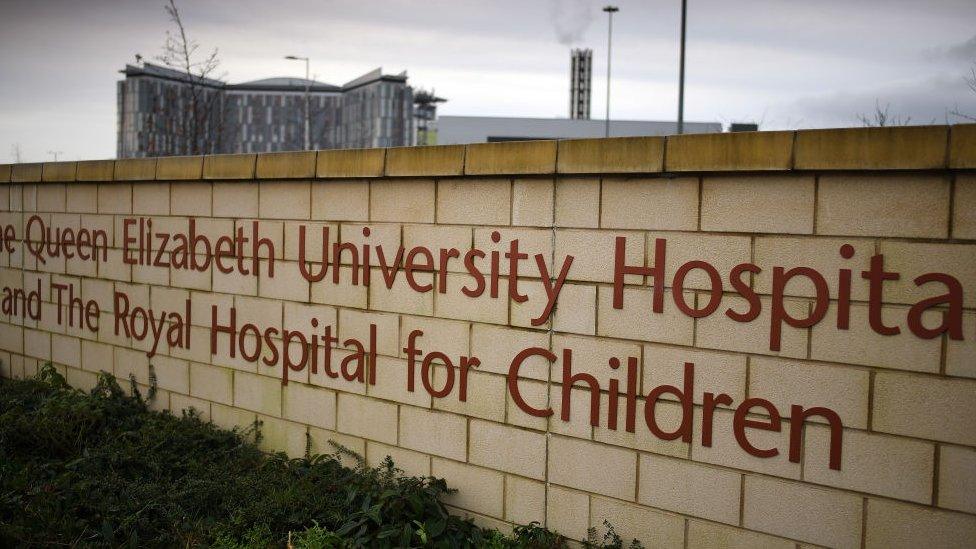
The Queen Elizabeth University Hospital and the Royal Hospital for Children share a campus in the south of Glasgow
An independent review is examining water contamination and other problems at the Queen Elizabeth University Hospital campus.
On Tuesday Ms Freeman told MSPs on Holyrood's health committee it would publish its findings in the spring.
The health secretary said she expects a separate public inquiry, which will examine safety and wellbeing issues at the QEUH and the new children's hospital in Edinburgh, will also look at water contamination.
Earlier this week, in an interview with BBC Scotland, Ms Freeman refused to rule-out government intervention at the health board.
Asked if putting the board into special measures was an option, she replied: "It's always an option."
The powers were last used on NHS Tayside in 2018 and mean the Scottish government takes a more direct role in management.
Calls for government intervention at the Glasgow health board have been led by Mr Sarwar.
He claims NHSGGC tried to intimidate health service whistleblowers who raised concerns.
In a letter to Ms Freeman on Tuesday, he said the health board had lost the trust of the families and NHS staff connected to the "revelations".
"They cannot be left to investigate themselves," he added. "I implore you to please take control of this situation and put them into special measures."
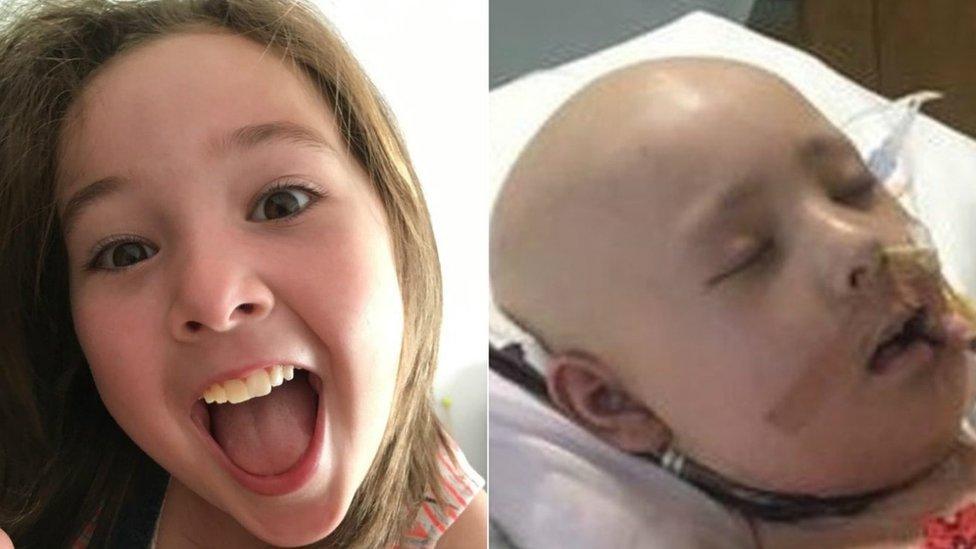
Milly Main contracted an infection while recovering from a stem cell transplant in Glasgow
The children's deaths emerged after Mr Sarwar was contacted by a whistleblower.
Milly Main died on 31 August while recovering from leukaemia treatment. Her mother said she was "100%" convinced her death was linked to water contamination issues.
NHSGGC has insisted it was impossible to determine the source of Milly's infection because there was no requirement to test the water supply at the time.
On Sunday police confirmed they had investigated the death of a three-year-old boy three weeks before Milly died. Police said they passed a report to the procurator fiscal.
NHSGGC said they had fully investigated and shared their findings with the boy's family but the child's mother later described the board's media statement as "highly inaccurate".
Last week a whistleblower revealed that a doctor-led review, external had identified 26 infections at RHC during 2017 which were potentially linked to contaminated water.
The £842m Queen Elizabeth University Hospital "super hospital" has faced a number of problems since it opened in 2015.
Two cancer wards at the adjoining children's hospital were closed last year amid concern about infections and investigation of water supply issues, with patients decanted to the adult hospital.
In January it emerged that two patients at the QEUH had died after contracting a fungal infection linked to pigeon droppings.
- Published18 November 2019

- Published18 November 2019

- Published17 November 2019
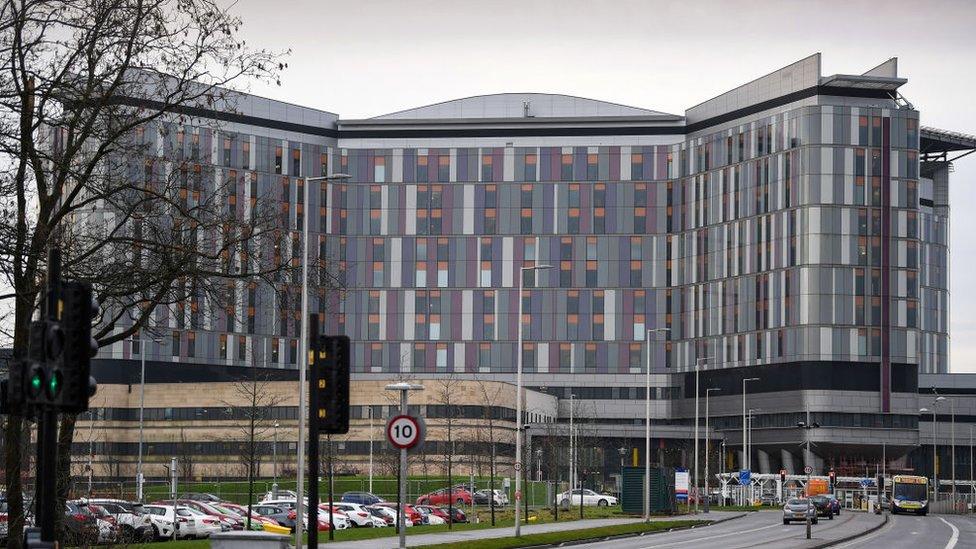
- Published16 November 2019

- Published15 November 2019
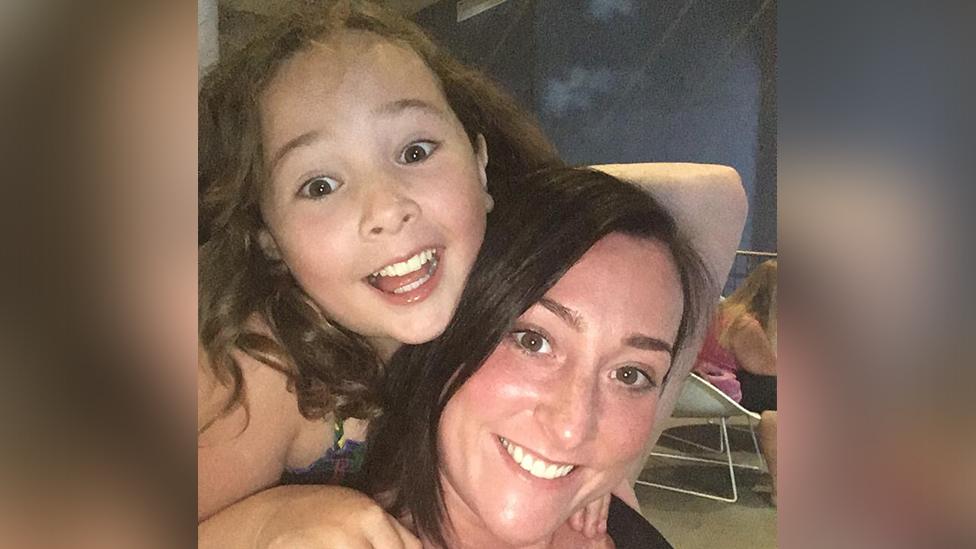
- Published15 November 2019
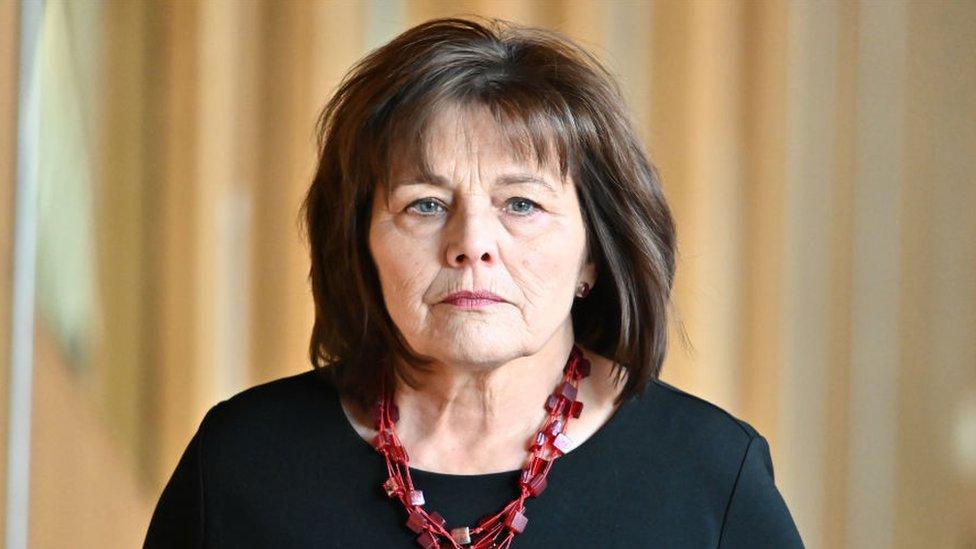
- Published14 November 2019
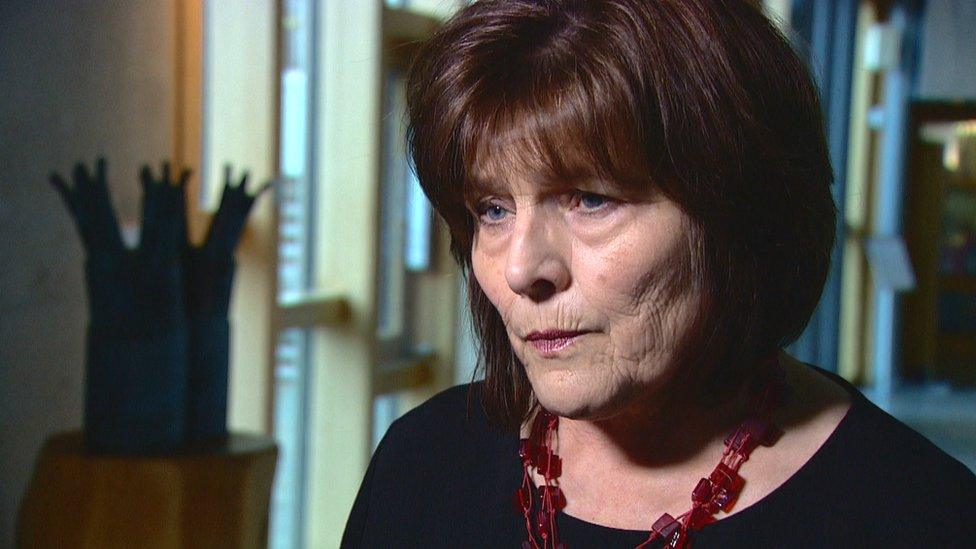
- Published17 September 2019
